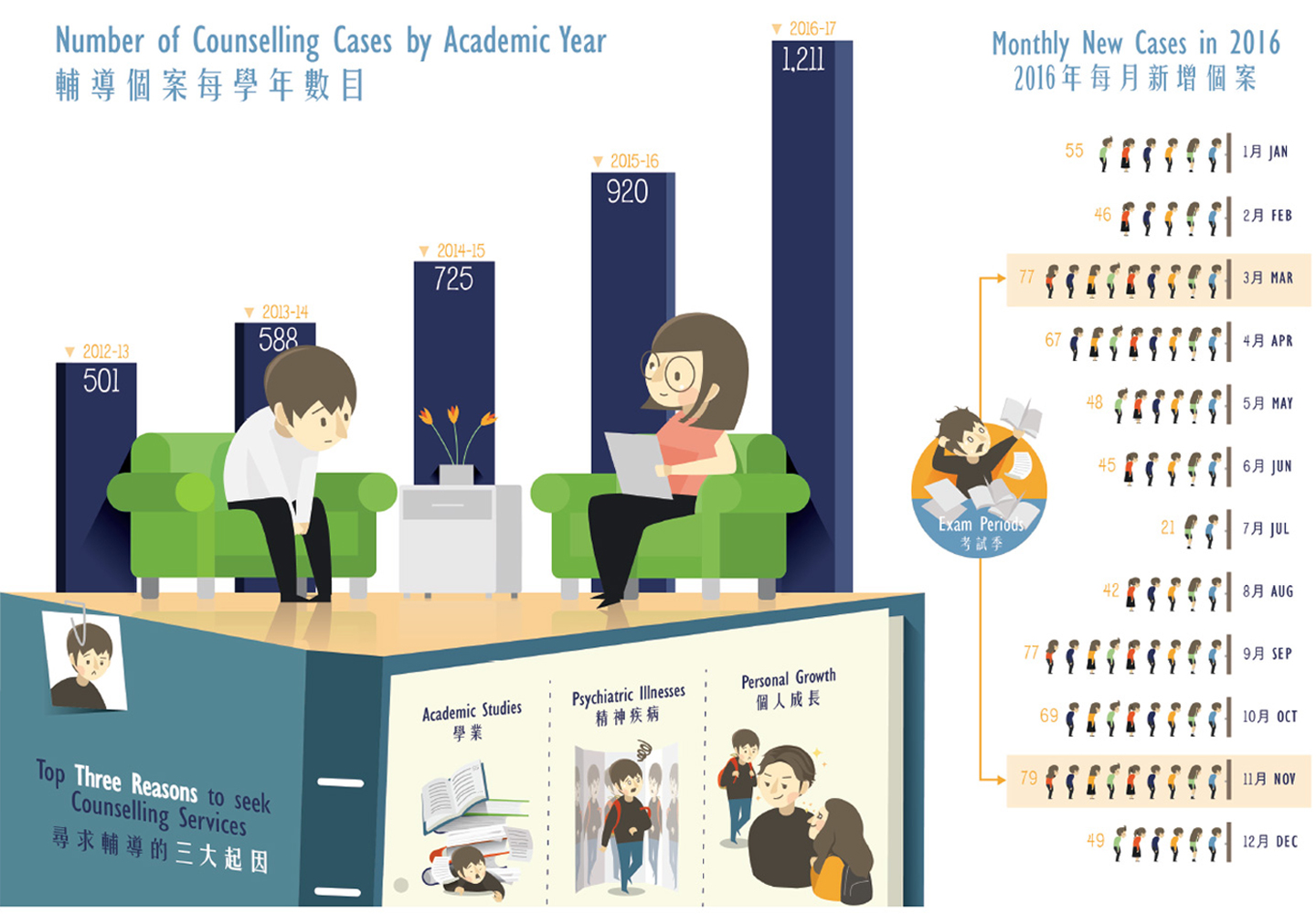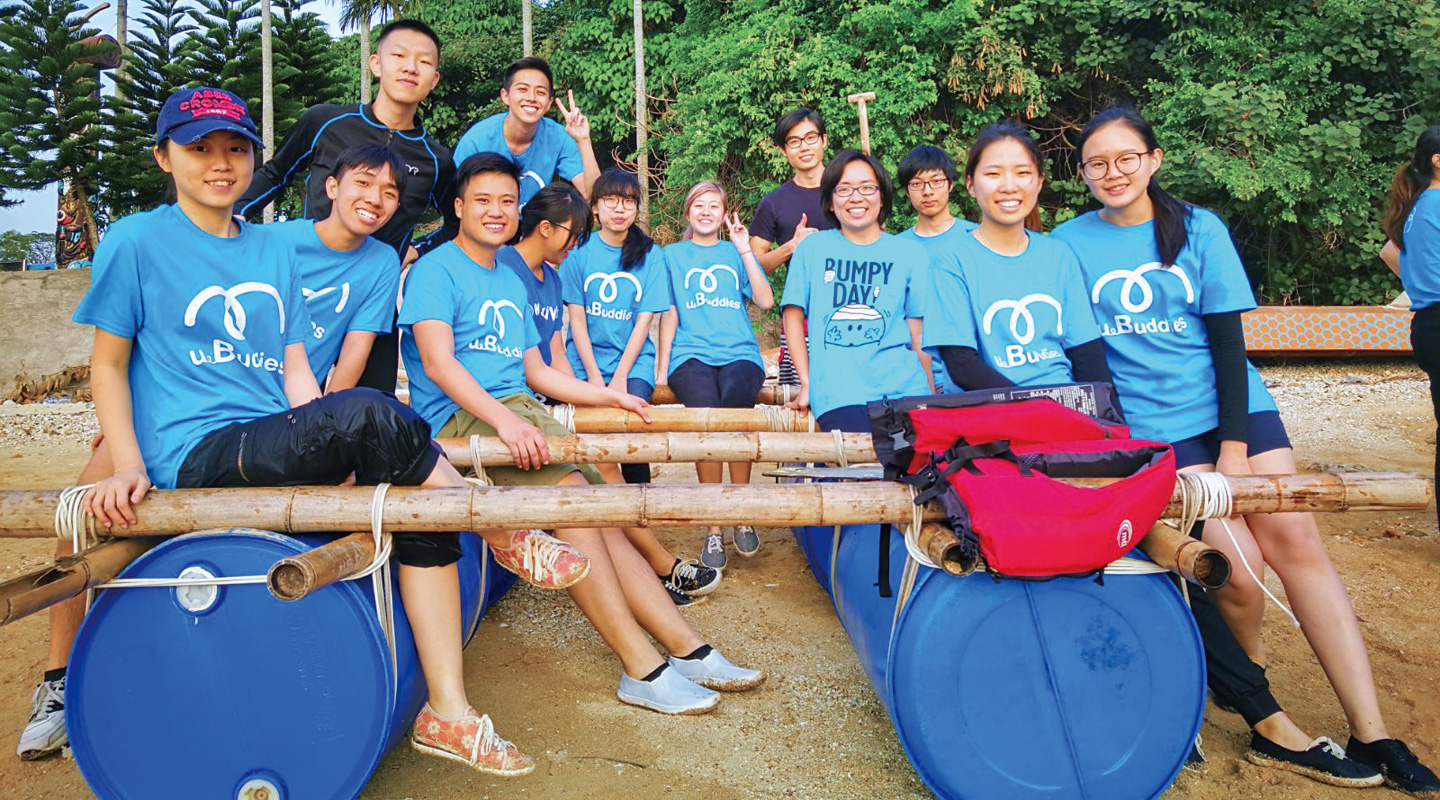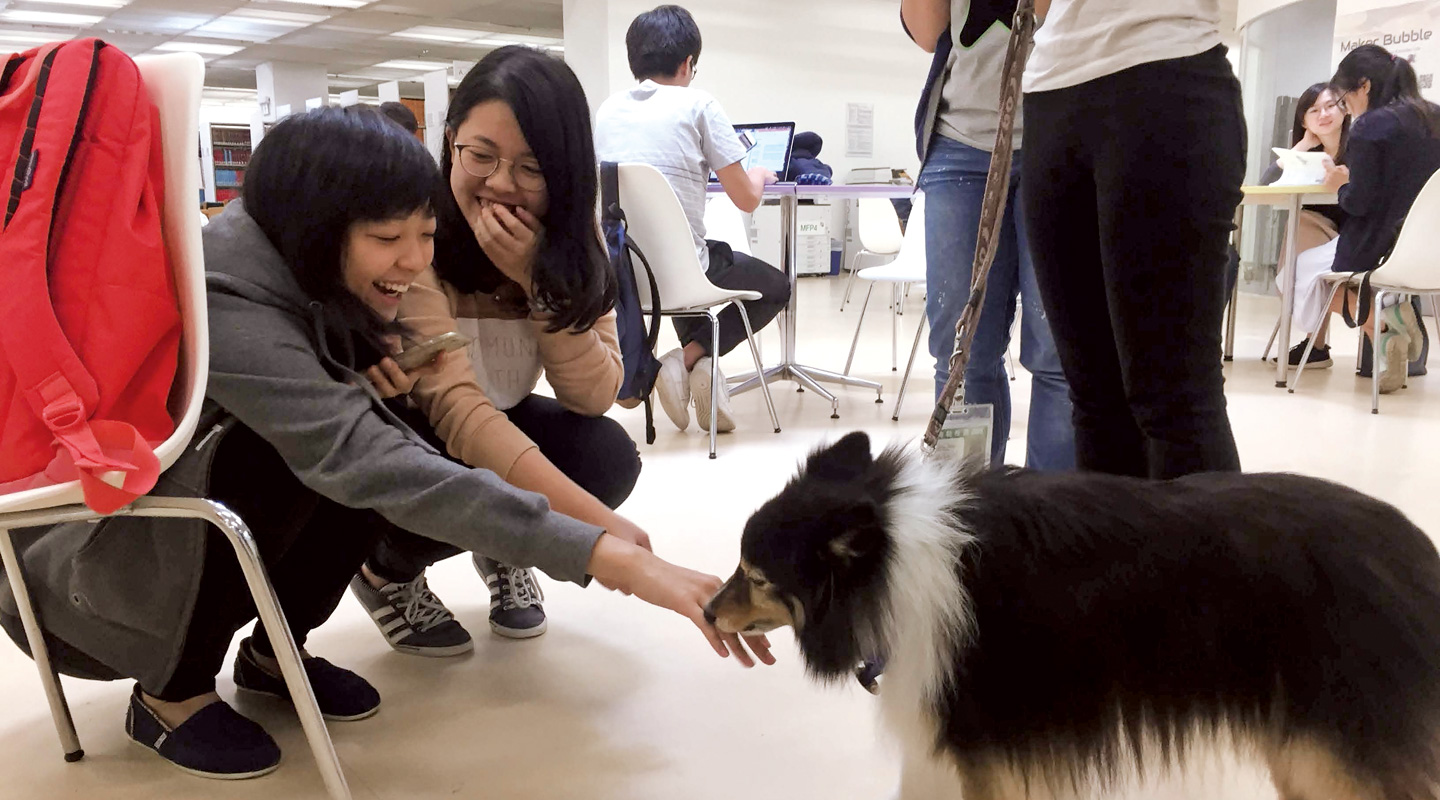Dear readers, With the launch of e-newsletter CUHK in Focus, CUHKUPDates has retired and this site will no longer be updated. To stay abreast of the University’s latest news, please go to https://focus.cuhk.edu.hk. Thank you.
Guardian of the Souls
Wellness and Counselling Centre

In Greek mythology, Psyche, the wife of Cupid, was the goddess of soul who transformed the misfortunes of life into true happiness. At CUHK, the responsibility of protecting the souls of its students falls on the shoulders of the Office of Student Affairs (OSA). Its Wellness and Counselling Centre offers professional counselling services, and, like a Psyche on campus, safeguards the mental well-being of nearly 20,000 full-time undergraduate and postgraduate students.
In the academic year 2016–17, the Centre managed 1,211 counselling cases, which more than doubled from the 501 cases in 2012–13. To meet the rising demand, the Centre increased the number of frontline counsellors from eight to 11 last year. Meanwhile, it relocated its offices from Benjamin Franklin Centre on the Main Campus to the lake-facing Pommerenke Student Centre for a more spacious and comfortable counselling environment. It has also developed a set of strategy for promoting campus-wide care.
First Line of Defence
According to Dr. Ada Yuen (2nd right, front row), Assistant Director of OSA and a clinical psychologist by training, the rise in demand for mental-health service is due to three factors: more students are entering university with a history of diagnoses; students are under greater pressure to perform and achieve in every aspect of life while their resilience and problem-solving ability might fail to keep up; and more of them are seeking treatment thanks to a reduction in the stigma surrounding mental illness.

To identify students at risk and act early, the Centre conducts a mental health screening for over 3,000 undergraduate and 1,000 postgraduate new students during the orientation period from every August to October. Members of the counselling staff give a presentation that covers symptoms of possible mental illness and where to find on-campus resources, while questionnaires will be distributed to survey the students’ psychological health. Those who are identified to have signs of depression, anxiety or even suicidal tendency will be contacted by the counsellors for follow-up.
Peer Pleasure
uBuddies is a peer counselling network for undergraduate students. Some 30 students representing a cross-section of the student population are selected from a pool of applicants each year since 2010. They are drilled in peer counselling skills and taught to identify, understand and respond to signs of mental illnesses in others and in themselves. Under the supervision of counselling professionals, they transmit good vibes and sound advice to students by organizing sharing groups, shooting videos and producing booklets.

Last year, uBuddies even set up a Facebook page called ‘A Tree Hole in the Mountain’. Like many ‘secrets’ pages on social media, it welcomes students to contribute anonymously and vent their frustrations. In particular, the peer counsellors who manage the page will respond to each submission carefully by giving advice and guidance based on the mental health first aid skills they have learned. ‘Compared with professional counsellors, uBuddies can better understand the troubles faced by their fellow students. The messages offered are likely to strike a chord. Students who are too intimidated to seek help now have a channel to cope with stress before their problems become severe,’ remarked Dr. Yuen.
Protection is Better Than Cure
Besides emergency relief, the Centre is trying to build resilience in their students so they are less likely to become overwhelmed in the first place. Mental health promoting activities have proliferated, among which are the ‘Mindfulness Workshops’ that allow participants to transform negative thoughts through conscious breathing, ‘Dr. Dogs’ that show up on campus during exam periods to cheer up stressed-out students, and ‘Laughter Yoga’ that combines voluntary laughter and yoga breathing to revitalize the body and the brain. This year, the ‘Mental Wellness Promotion Day’ featured the theme of ‘embrace yourself’ to advocate self-acceptance. Taken together, these activities are bringing light to a once-taboo subject, and a broader concept of mental health is starting to take hold.

Union is Strength
Rather than relying on a single unit, protecting the mental health of 20,000 students actually depends on the collaboration of all parties on campus. Since last year, the Centre has strengthened its partnership with the nine Colleges of CUHK and assigned coordinators to each of them. When there is a mental-health emergency, the College staff can immediately contact the pre-assigned counsellor to seek support and therefore improve the efficiency of crisis management. In ‘A United and Connected Campus: Suicide Prevention Symposium’ held on 16 March, scholars, psychiatrists, and representatives from the hostels and the Security Office shared experiences from their respective perspectives. It taught staff members who interact frequently with students how to read suicidal signs and how to help.
If a doctor of the University Health Service (UHS) finds that the symptoms of a student might be psychologically related, he/she would refer the student to the Centre for counselling treatment. Conversely, if a counsellor is of the opinion that immediate medical intervention is required, the case would be referred to UHS.
To provide support to needy students around the clock, the Centre has set up a 24-hour emotional support hotline (5400 2055) since March 2016. All calls are received by trained counsellors from the Christian Family Service Centre. Dr. Yuen said more than 200 tele-counselling cases have been handled in the past two years, which proves to be an effective way to assuage anxiety before it escalates.
Although the Centre mainly targets the students, Dr. Yuen also shared a mental health tip for staff members: ‘Before going to work, remind yourself of the reasons for choosing this job. Whether it was serving the students, putting your talent to good use, or simply supporting your family, as long as you can bear in mind the meaning of your work, there will be energy for you to stride forward.’ When constantly exposed to and absorbing the negative emotions of other people, some counsellors are themselves one step from burnout. The tip offered by Dr. Yuen must also be the secret of how her team of soul guardians can regain and maintain passion for their demanding yet meaningful work.
This article was originally published in No. 517, Newsletter in May 2018.